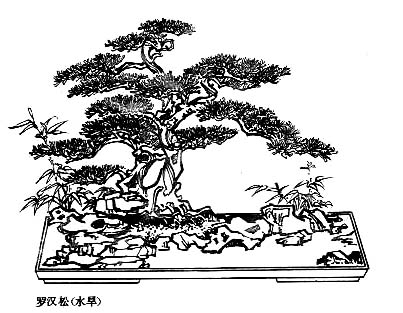Shi Jing 
 – The Book of Odes
– The Book of Odes
The oldest collection of Chinese poetry, more than three hundred songs, odes and hymns. Tr. Legge (en) and Granet (fr, incomplete).
Shijing III. 2. (245)
The first birth of [our] people,
Was from Jiang Yuan.
How did she give birth to [our] people ?
She had presented a pure offering and sacrificed,
That her childlessness might be taken away.
She then trod on a toe-print made by God, and was moved,
In the large place where she rested.
She became pregnant ; she dwelt retired ;
She gave birth to, and nourished [a son],
Who was Hou-ji.
When she had fulfilled her months,
Her first-born son [came forth] like a lamb.
There was no bursting, nor rending,
No injury, no hurt ; –
Showing how wonderful he would be.
Did not God give her the comfort ?
Had He not accepted her pure offering and sacrifice,
So that thus easily she brought forth her son ?
He was placed in a narrow lane,
But the sheep and oxen protected him with loving care.
He was placed in a wide forest,
Where he was met with by the wood-cutters.
He was placed on the cold ice,
And a bird screened and supported him with its wings.
When the bird went away,
Hou-ji began to wail.
His cry was long and loud,
So that his voice filled the whole way.
When he was able to crawl,
He looked majestic and intelligent.
When he was able to feed himself,
He fell to planting large beans.
The beans grew luxuriantly ;
His rows of paddy shot up beautifully ;
His hemp and wheat grew strong and close ;
His gourds yielded abundantly.
The husbandry of Hou-ji,
Proceeded on the plan of helping [the growth].
Having cleared away the thick grass,
He sowed the ground with the yellow cereals.
He managed the living grain, till it was ready to burst ;
Then he used it as seed, and it sprang up ;
It grew and came into ear ;
It became strong and good ;
It hung down, every grain complete ; –
And thus he was appointed lord of Tai.
He gave his people the beautiful grains : –
The black millet, and the double-kernelled ;
The tall red, and the white.
They planted extensively the black and the double-kernelled,
Which were reaped and stacked on the ground.
They planted extensively the tall red and the white,
Which were carried on their shoulders and backs,
Home for the sacrifices which he founded.
And how as to our sacrifices [to him] ?
Some hull [the grain] ; some take it from the mortar ;
Some sift it ; some tread it.
It is rattling in the dishes ;
It is distilled, and the steam floats about.
We consult ; we observe the rites of purification ;
We take southernwood and offer it with the fat ;
We sacrifice a ram to the Spirit of the path ;
We offer roast flesh and broiled : –
And thus introduce the coming year.
We load the stands with the offerings,
The stands both of wood and of earthenware.
As soon as the fragrance ascends,
God, well pleased, smells the sweet savour.
Fragrant is it, and in its due season !
Hou-ji founded the sacrifice,
And no one, we presume, has given occasion for blame or regret in regret to it,
Down to the present day.
Legge 245

The Book of Odes – Shi Jing III. 2. (245) – Chinese off/on – Français/English
Alias Shijing, Shi Jing, Book of Odes, Book of Songs, Classic of Odes, Classic of
Poetry, Livre des Odes, Canon des Poèmes.
The Book of Odes, The Analects, Great Learning, Doctrine of the Mean, Three-characters book, The Book of Changes, The Way and its Power, 300 Tang Poems, The Art of War, Thirty-Six Strategies
Welcome, help, notes, introduction, table.
Index – Contact – Top
